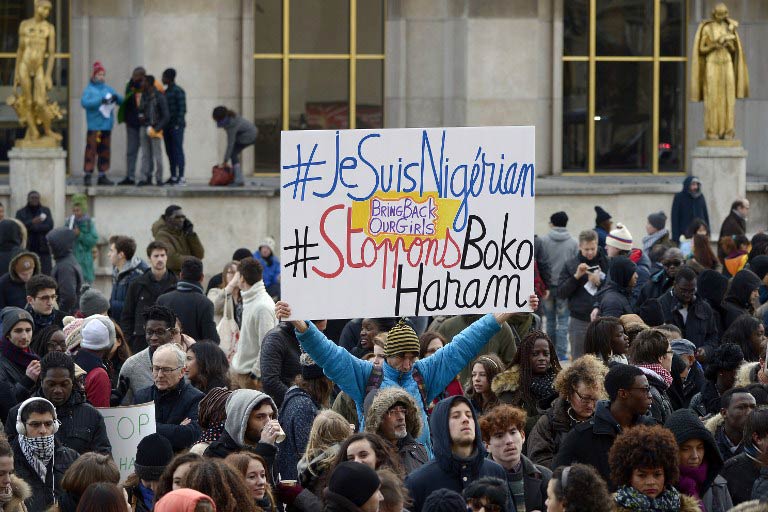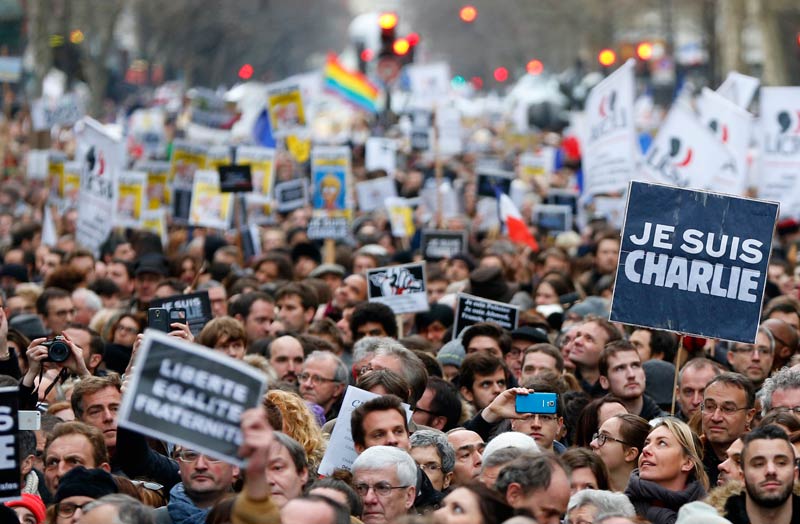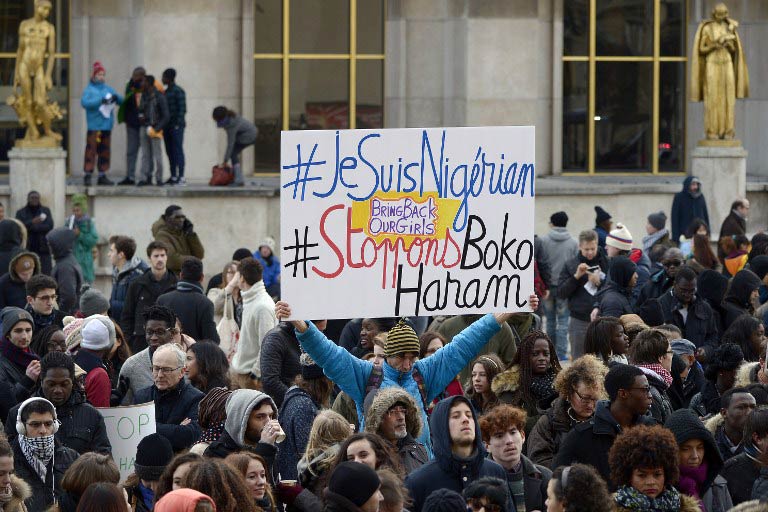‘2000 people killed.’
‘Actually it is 150 people.’
‘That makes it fine then. Thank you for the correction, we can continue to ignore the Boko Haram crisis.’
This is clearly how the Nigerian government thought the conversation would go when they sought to amend the ‘error’ that had been widely published about the recent attacks in Baga.

The question one needs to ask is why does it seem that reducing the numbers of deaths makes the situation any better? The fact that there are any people who have perished at all should be cause for the same amount of uproar.
Within Africa we enjoy playing the numbers game when it comes to how serious a tragedy is.
We treat death like a party; the higher the numbers the more serious the event.
Why make a fuss about having one girl missing when we could have 250? It is not a real event until the number hits the triple digits. Why be bothered with one person being shot dead in a police shootout when we could have police kill whole groups of miners?
What this seems to say is that there is a need to supplement the quality of an African life with quantity. In order to make a human life matter we need the numbers, but we never have the names and faces.
These are always irrelevant.
When we scope a news article for simply the digits and never the story we say that African lives are worth less.
Within the international realm we make good news when whole groups of us have died or disappeared. It cannot be three or four of us, we need to make it a party.
#BringBackOurGirls was an international phenomenon because the number of girls missing was truly mind-boggling. How in the age of Google Earth can we not find 200+ girls? The world had no choice but to get behind it because of the scale of it.
However, #JeSuisCharlie saw 12 deaths trump the amount of international attention that #BringBackOurGirls and has become one of the most-used hashtags in Twitter history.
The heinous acts that prompted the two hashtags are based on ideals of western values clashing with fundamentalist Islamic ideals. Both involved the lives of people. If we do the maths (because it is about the bottom line), if all lives matter equally should we not have had nearly ten times the uproar for the Nigerian girls as we did for the French deaths?

Where is our international march featuring the ‘who’s who’ of political figures? Our own leaders were falling all over themselves in order to proclaim that they were Charlie but barely uttered a peep about bringing back our girls. The 2000 deaths have barely managed to cause a whisper as it is continuously drowned out by the roar of defiance coming from the #CharlieHebdo saga.
Furthermore the names of African victims are rarely released. They often fall into the oblivion of numbers, allowed to become another statistic. Only those who are prominent in some way (a relation of a politician, a foreign national of another country for example) are given names, faces and back stories.
So the killing of 28 bus passengers in November by al-Shabaab near the town of Mandera, on the border between Somali and Kenya, remains just that: the death of 28 nameless, faceless bus passengers.
And what of those in Niger who died protesting against Charlie Hebdo? Where are their names, their backgrounds, an in-depth exploration of their dreams and ideologies?
They have no identities in the media. They simply add to the numbers that are part of the story. Had this occurred in the West, we would have read about the lives of the victims, their families would have all been interviewed and we would have known everything about them, because in death they mattered.
In Africa, the dead mostly remain nameless. It would seem in death we do not matter outside of adding ‘meat’ to a story.
Maybe therein lies the problem. Terrorist attacks are happening so often on the continent that they no longer shock us to our core.Two killed in a bomb blast in a Nairobi market; 15 girls kidnapped here; a suicide bombing there. It is only if we can squeeze those many into one incident that there is enough potency to make it so that it actually matters.
We need to start valuing the lives of Africans.
A great deal of this lies in how we portray the loss of African lives in the media. It depends on the amount of depth and clout that is given to stories within local spheres. If one girl gets kidnapped it must be treated as if it is the end of the world because it is. And when something happens to one person or 50 people it matters just the same.
We need to name them and not wait for media outlets and information providers abroad to name them for us.
We need to name ourselves before others can give us names.
Once we give those names we need to care about them enough to cause an uproar, because they do matter.
If we fail to fix this, we shall get to a point where we are missing 500 girls, enduring massacres of 5000 people and having entire mining villages shot down but no one will bat an eyelid because ‘at least it isn’t 250 girls, 2000 people and a few miners.’ We will find these numbers rising because we seemed to not care when the numbers were smaller.
Kagure Mugo is a freelance writer and co-founder and curator of holaafrica.org, a Pan-Africanist queer women’s collective which engages in activism and awareness-building around issues of African women’s identity, experiences and sexuality. Connect with her on Twitter: @tiffmugo
